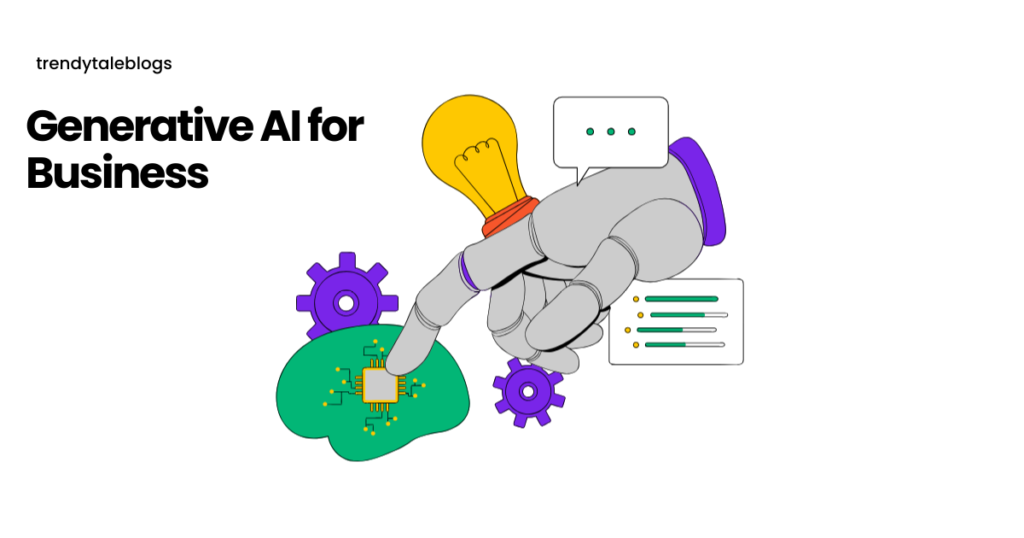Technology Trends 2025: Shaping the Future of Innovation
Technology Trends 2025 move swiftly, and the year 2025 promises to deliver even more innovative innovations. With breakthroughs in artificial intelligence, blockchain, virtual reality, and other upcoming technologies, the environment is going to change radically. This article will analyse the important technology developments in 2025 that will reshape sectors and shape the way we live, work, and interact.
1. Artificial Intelligence and Machine Learning
Artificial Intelligence (AI) and Machine Learning (ML) are no longer future concepts. By 2025, AI and ML will continue to dominate numerous areas. From automation to tailored customer experiences, AI is poised to disrupt industries. Machines will become even smarter, handling complicated jobs with greater precision.
AI will not only boost productivity in manufacturing and healthcare but also tailor user experiences in real time. For instance, AI algorithms will power customer support systems, creating chatbots capable of reading human emotions and responding accordingly. These technologies will improve with time, becoming more human-like in interactions.
Technology trends 2025 will see AI being integrated into daily products, from smart home systems to wearable technology. The next wave of AI breakthroughs will centre on autonomous transportation, when cars will drive themselves without human assistance. Additionally, AI’s involvement in cybersecurity will rise, with AI-driven systems identifying and responding to threats faster than ever before.
2. 5G and Beyond
The implementation of 5G technology is likely to have a major influence on how we interact and communicate. In 2025, 5G networks will be widely accessible, giving faster speeds and lower latency. This next-generation technology will enable advancements in IoT (Internet of Things), AI, and autonomous systems.
5G’s ultra-fast speeds will increase the functionality of smart cities, where everything from traffic systems to public services will be connected. As more gadgets become internet-enabled, 5G will make it possible for millions of devices to communicate effortlessly. Additionally, 5G will increase cloud computing and gaming experiences, eliminating lag and enabling smoother real-time interactions.
Technology trends 2025 will also usher in 6G research. Though still in early stages, 6G is projected to build on 5G’s foundation, enabling even faster speeds and more dependable connections. This will open the door for more complex technologies, including holographic communication and real-time data sharing on a huge scale.
3. Quantum Computing
Quantum computing is one of the most fascinating areas in technology. By 2025, researchers foresee substantial breakthroughs in this field. Quantum computers, which use quantum bits (qubits) instead of standard binary bits, can process information at speeds unthinkable with today’s systems.
In domains like cryptography, AI, and medicine development, quantum computers will reveal new possibilities. For example, they could penetrate advanced encryption systems that existing computers cannot. Quantum computing could potentially speed advancements in material science and renewable energy, leading to innovations that were long thought to be unachievable.
Technology trends 2025 will witness quantum computing entering more commercial applications. However, its widespread application will still confront obstacles. Issues like mistake rates and the necessity for intense cooling will need to be addressed. Nevertheless, the potential of quantum computing in transforming sectors is huge.
4. Extended Reality (XR)
Extended Reality (XR) encompasses Virtual Reality (VR), Augmented Reality (AR), and Mixed Reality (MR). These immersive technologies are expected to change how we engage with the digital world. By 2025, XR will be a prominent participant in fields like entertainment, education, and healthcare.
In the entertainment industry, XR will enhance game experiences, allowing players to step into virtual worlds. Similarly, in education, XR will provide interactive learning environments, letting students to explore subjects like history and biology in more engaging ways. By immersing students in realistic simulations, XR will make learning more dynamic and effective.
Technology trends 2025 will see healthcare embracing XR for better patient care. Surgeons will employ AR to overlay digital information during surgery, enhancing precision. Additionally, XR will assist train medical workers by mimicking difficult procedures. These developments will make healthcare more accessible and efficient, especially in distant locations.
5. Blockchain and Decentralized Finance (DeFi)
Blockchain technology has developed from a tool for cryptocurrency transactions to a basic aspect of many enterprises. In 2025, blockchain will continue to expand its reach, touching everything from supply networks to voting systems. One of the most significant breakthroughs will be the rise of Decentralized Finance (DeFi).
DeFi allows for financial services to be supplied without traditional intermediaries like banks. By adopting blockchain, these services are more safe, transparent, and accessible. In 2025, we may expect the adoption of DeFi solutions to expand, offering people more control over their financial operations. This will involve decentralized lending, borrowing, and trading.
Technology trends 2025 will also witness the usage of blockchain in non-financial applications, such as healthcare data management and identity verification. As blockchain technology evolves, more firms will understand its potential for protecting sensitive data.
6. Edge Computing
Edge computing is a distributed computing platform that puts processing and data storage closer to the spot where it is needed. In 2025, edge computing will play a major role in allowing speedier decision-making and real-time processing. As more gadgets generate data, processing that information locally will cut latency and bandwidth utilization.
Edge computing will be vital in sectors like driverless vehicles and smart cities, where speedy reactions are critical. For instance, self-driving cars need to evaluate data from sensors in real time to travel safely. Similarly, in smart cities, edge computing will manage traffic, utilities, and public safety services more effectively.
Technology trends 2025 will see edge computing integrated into a greater range of devices. From industrial equipment to wearable electronics, these gadgets will be able to handle data locally, assuring speedier and more efficient operations.
7. Robotics and Automation
Automation is not a new concept, but its potential is bigger than ever. By 2025, robots will become more capable of completing tasks previously done by humans. Advances in AI and machine learning will make robots smarter, enabling them to learn from their environment and improve over time.
Industries including manufacturing, shipping, and healthcare will see robots playing a more important role. Robots will undertake duties such as assembly, packaging, and delivery, resulting in enhanced efficiency. In healthcare, robots will aid in surgeries and rehabilitation, increasing patient outcomes and shortening recovery periods.
Technology trends 2025 will also lead to the growth of collaborative robots, or cobots, which will work alongside human employees. These cobots will boost efficiency in enterprises by completing repetitive chores while allowing humans to focus on more complicated responsibilities.
8. Sustainability and Green Technologies
As climate change continues to be a significant global concern, sustainability will be at the forefront of technology developments in 2025. Green technologies will evolve, delivering cleaner and more efficient ways to meet environmental concerns. From renewable energy to carbon capture, these developments will help lessen the negative impact of industrial activity.
Solar and wind energy technologies will grow more efficient and affordable, pushing the transition to sustainable energy. Similarly, electric vehicles (EVs) will become increasingly prevalent, lessening dependence on fossil fuels. Technologies like carbon capture and storage (CCS) will also progress, helping industry to minimise their carbon footprints.
Technology trends 2025 will place a heavy emphasis on developing circular economies, where resources are reused, and waste is reduced. Innovations in recycling and sustainable manufacturing will lead to a more sustainable future.
9. Human Augmentation
Human augmentation refers to increasing human skills using technology. By 2025, improvements in wearable technology, neurotechnology, and gene editing will enable humans to accomplish tasks with greater power, precision, and intelligence. For example, exoskeletons will allow those with mobility limitations to walk again.
Neurotechnology will also make advancements, enabling direct contact between the brain and computers. This will open up new options for persons with disabilities, offering remedies for conditions like paralysis. Gene editing technologies, like CRISPR, will enable for focused treatments of genetic problems, opening the path for customised medicine.
Technology trends 2025 will focus on increasing the quality of life for persons through these breakthroughs. However, ethical problems will arise, particularly surrounding privacy, consent, and the potential for misuse of new technologies.
10. Personalized and Immersive Experiences
As technology continues to improve, consumers will want more personalized and engaging experiences. In 2025, breakthroughs in AI, AR, and XR will enable enterprises to offer personalized products and services. Whether it’s shopping, entertainment, or education, customers will want experiences that cater to their specific preferences.
Retailers will utilise AI to recommend products based on browsing behaviour, making shopping more convenient. Similarly, the entertainment industry will embrace XR to build immersive worlds that engage users on a deeper level. Personalized learning technologies will make education more flexible to each student’s needs, boosting overall outcomes.
Technology trends 2025 will enable organisations to better understand consumer behavior and create more relevant and engaging experiences. These tailored interactions will develop deeper consumer ties and drive innovation across sectors.
Conclusion
The technology developments in 2025 are poised to alter companies, societies, and our daily lives. From AI and quantum computing to 5G and sustainable advancements, the future is brimming with intriguing possibilities. As we continue to push the frontiers of what’s possible, these trends will not only define our technical landscape but also impact how we communicate, learn, and tackle global concerns.
FAQ on Technology Trends 2025
What are the top technology trends 2025?
The main developments include AI, quantum computing, 5G, XR, blockchain, edge computing, and sustainability technologies.
How will AI effect sectors in 2025?
AI will boost automation, personalize experiences, and improve efficiencies in sectors including healthcare, banking, and manufacturing.
What is extended reality (XR)?
XR is an umbrella word that includes virtual reality (VR), augmented reality (AR), and mixed reality (MR), changing entertainment, education, and healthcare.
Will 5G technology be available in 2025?
Yes, by 2025, 5G networks will be widely accessible, enabling speedier communication and the development of smart cities and autonomous systems.
How will blockchain be used in 2025?
Blockchain will transform industries by boosting security and transparency, particularly in finance, supply networks, and healthcare.



